There is perhaps no wider chasm between the United States and Africa than over the issue of gay rights. The tension was thrown into sharp relief during U.S. President Barack Obama’s trip to Kenya, the first visit of a serving U.S. President to this East African Nation. In a joint press conference with Kenyan President Uhuru Kenyatta on Saturday, following what appeared to have been a warm and productive meeting behind closed doors, Obama made it clear that the issue of gay rights in Kenya remained unresolved.
“I believe in the principle of treating people equally under the law, and that they are deserving of equal protection under the law and that the state should not discriminate against people based on their sexual orientation,” Obama said. “I’m unequivocal on this.”
Kenyatta’s government has staunchly defended laws imposing up to 14 years in prison for homosexuality. Kenya and the United States, he said, shared many values, from a love for democracy, entrepreneurship and families.
Gay rights were not one of those values.
“There are some things that we must admit we don’t share—our culture, our societies don’t accept. It is very difficult for us to be able to impose on people that which they themselves do not accept.”
As I wrote in a recent cover story on gay rights in Uganda, this issue has resonance across the continent.
By and large, Africa as a whole is far behind the United States and Europe in regards to acceptance of homosexuality. Legislated homophobia is on the rise across the continent, even as LGBT people have made historic gains elsewhere in the world. According to a 2013 report by the Pew Research Center, a large majority of North Americans, Latin Americans and residents of the European Union now accept homosexuality. Same-sex marriages are legal in 20 countries, including the United States. But in Africa, where the vast majority of people—98% in Nigeria, 90% in Kenya and 96% in Uganda, Senegal and Ghana, according to the Pew poll—say homosexuality is unacceptable, many religious leaders have watched that progress with alarm. Conservative politicians have also sought to protect their nations from what they see as a Western import by drafting anti-gay legislation even more draconian than the colonial-era sodomy laws that remain on the books in many African countries.
“Over the last five years, we have seen more laws being proposed and being passed into law in Africa,” says Laura Carter, Amnesty International’s adviser on sexual orientation and gender identity. “Even in places where the laws have not changed, enforcement has increased.” Thirty-four of 54 African nations currently criminalize homosexuality. According to Amnesty, South Sudan, Burundi, Liberia and Nigeria have implemented increasingly punitive penalties for people who engage in homosexual acts. Gambia now calls for life in prison. Mauritania, Sudan and parts of both Somalia and Nigeria permit courts to impose the death penalty in certain cases for individuals found guilty of same-sex activity.
The Pew survey also describes how intolerance for homosexuality tends to be more intense in communities where there are high levels of religious observance, and African nations stand out as some of the most observant in the world. Religious conservatives, Christian and Muslim alike, may be losing ground with the public on LGBT rights in the West, but in Africa, where church and mosque remain the cornerstones of society and politics, anti-homosexual campaigners are determined to hold ground. Ty Cobb, global director for the Washington-based Human Rights Campaign, an LGBT-rights advocacy group, says the growing backlash against homosexuality in Africa over the past several years is a proxy war in the cultural conflict that is being lost by the evangelical Christian movement in the U.S. and beyond.
Kenyatta argued that Kenya had other priorities, listing heath, education and road development, along with greater representation of women in society. “This is why I repeatedly say that, for Kenyans today, the issue of gay rights is really a non-issue,” he said. “Maybe once, like you have overcome some of these challenges, we can begin to look at new ones.”
But when it comes to human rights, Obama made clear, it’s not so much a matter of priorities, but a matter of what is right. Drawing a comparison between anti-gay discrimination and the U.S. laws that once justified slavery and segregation, he brought in an unexpectedly personal angle. “As an African-American in the United States, I am painfully aware of the history of what happens when people are treated differently, under the law, and there were all sorts of rationalizations that were provided by the power structure for decades in the United States for segregation and Jim Crow and slavery, and they were wrong.”
He was not calling for a change in religious doctrine in Kenya, he said. “The state just has to say we’re going to treat everybody equally under the law.”
As Kenyatta made clear, little is likely to change in terms of Kenyan laws regarding gay rights. That was not the expectation, says U.S. presidential spokesman Ben Rhodes, who was accompanying Obama on the trip. Obama, he said, has been raising the issue during all his Africa travels. “Frankly, what we can do is keep a spotlight on [Lesbian, Gay, Bisexual and Transgender] rights and raise this issue and make sure that governments know that they are going to be hearing about this from us and hopefully from our partners in the international community.”
Nonetheless, Obama’s passionate defense of equality in a country that has long claimed him, a grandson of Kenya, for their own, may yet plant a seed that leads to greater acceptance down the line.
1996: Obama supports domestic partnerships and same-sex marriage—at least according to the paper trail
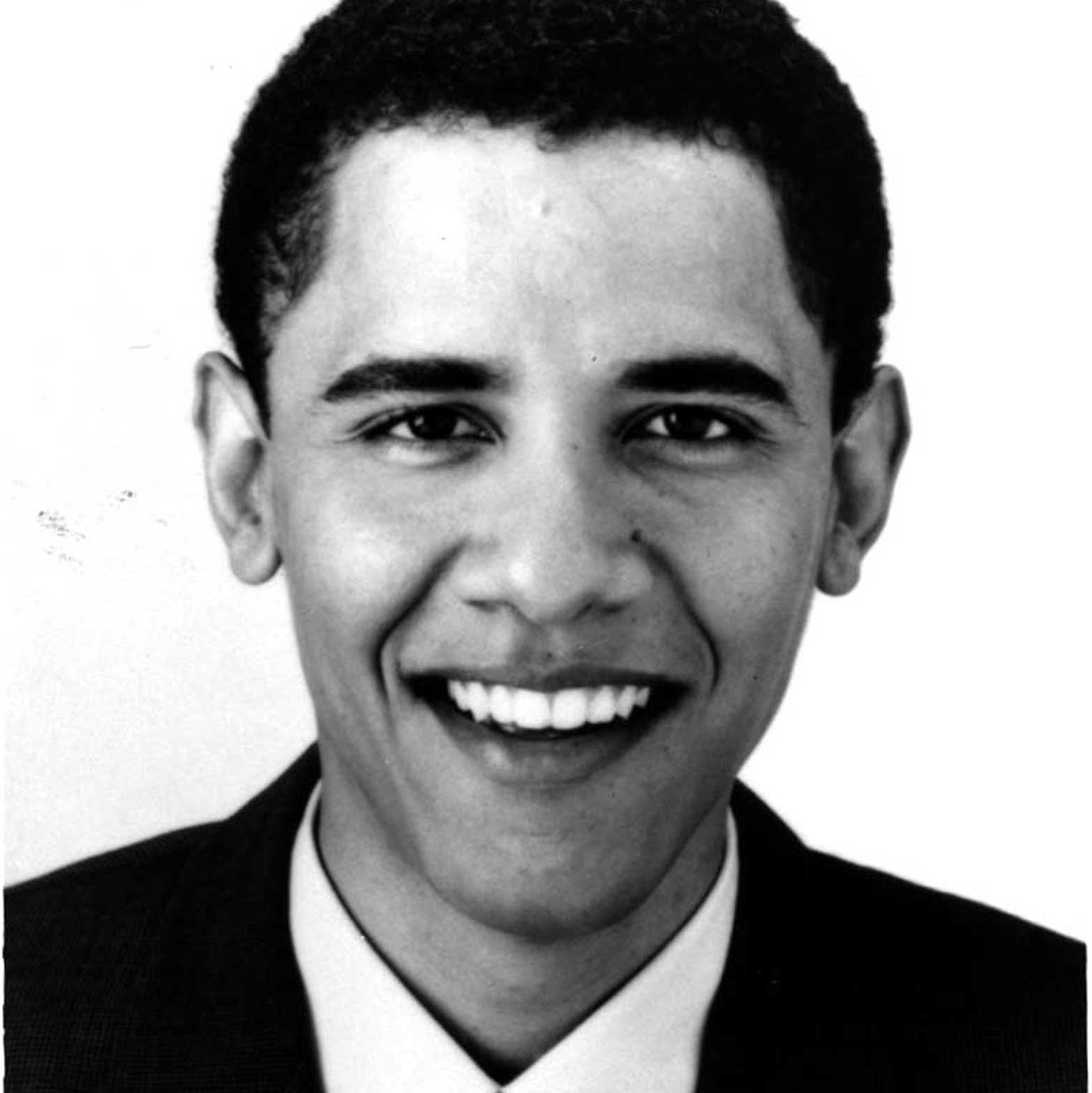
In one campaign questionnaire that Obama filled out when running for the Illinois state Senate, he states that he supports domestic partnerships and adding sexual orientation to the Human Rights Act, the state’s civil rights law. He also says that he supports affirmative action for gays and lesbians.
In another questionnaire for Chicago LGBT newspaper Outlines, Obama says he supports same-sex marriage. In 2009, a copy of his typed responses was unearthed and printed in the Windy City Times. “I favor legalizing same-sex marriages, and would fight efforts to prohibit such marriages,” reads the questionnaire bearing his signature at the bottom. Later, Obama aides will dispute that he actually filled out the questionnaire himself.
1998: Obama is ‘undecided’ about same-sex marriage
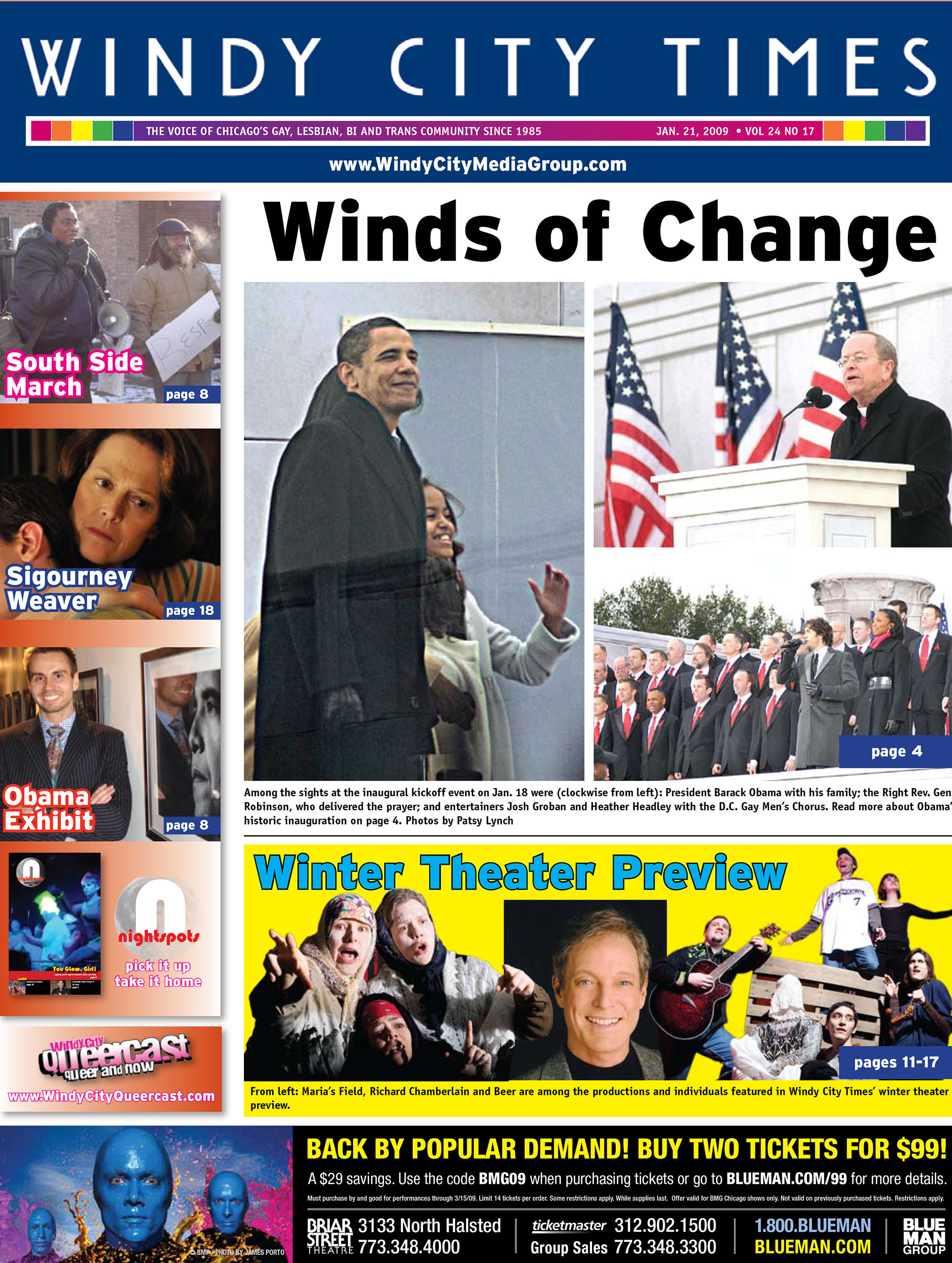
Seeking reelection in Illinois, Obama fills out another questionnaire for Outlines, which the Windy City Times published in 2009. This time he says he is “undecided” whether he supports legalizing same-sex marriage or repealing an Illinois law prohibiting it.
2004: Obama supports civil unions and civil rights for gays and lesbians—but insists that marriage is not a basic civil right
“Marriage is between a man and a woman,” Obama says in an interview on Chicago public television during his U.S. Senate campaign, adding, “but what I also believe is that we have an obligation to make sure that gays and lesbians have the rights of citizenship that afford them visitations to hospitals, that allow them to transfer property to each other, to make sure they’re not discriminated against on the job.”
He says homosexuality is not a choice and “for the most part, it is innate.” Obama distinguishes marriage from other civil rights, saying, “We have a set of traditions in place that I think need to be preserved.”
2004: Obama opposes the federal Defense of Marriage Act while running for a U.S. Senate seat in Illinois. He also opposes same-sex marriage
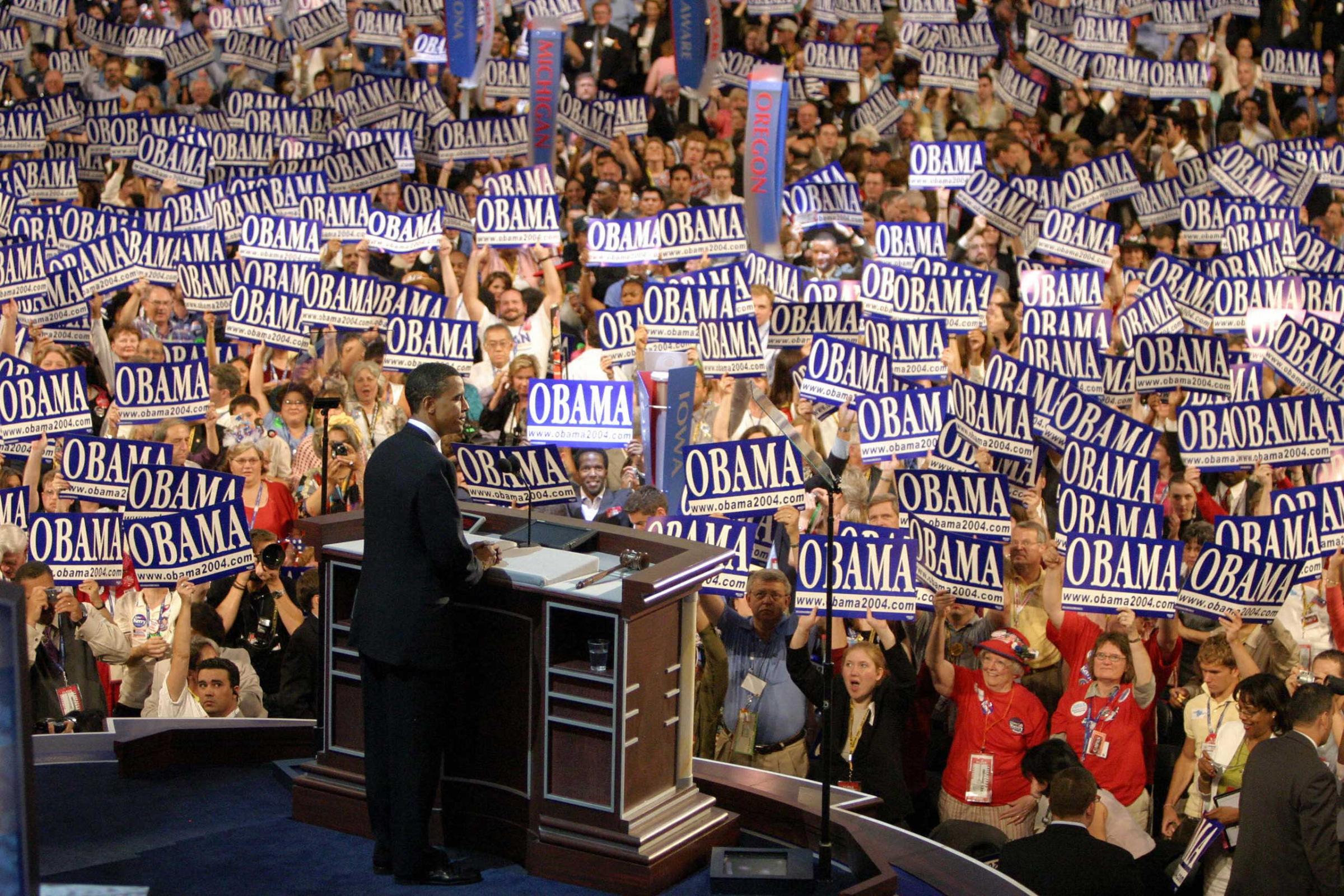
The Defense of Marriage Act, signed by Bill Clinton, allows states to refuse to recognize same-sex marriages legally established in other states. It previously prevented the federal government from recognizing same-sex marriages, until the Supreme Court ruled that provision unconstitutional in 2013.
2006: Obama questions his own opposition to same-sex marriage
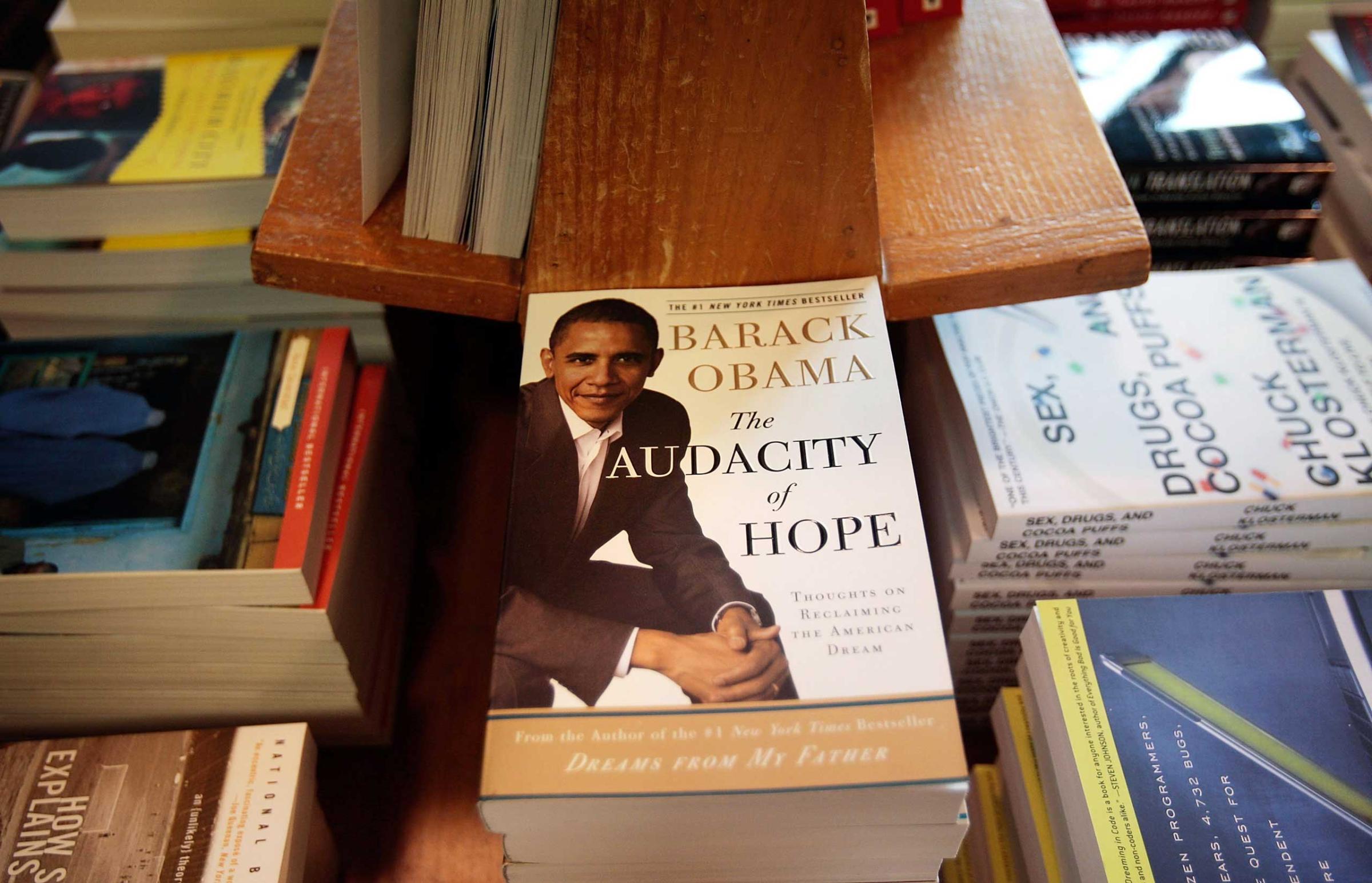
In his memoir The Audacity of Hope, Obama recounts a story of how a lesbian supporter called him up after he had said he opposed same-sex marriage in radio interview, citing his “religious traditions” as part of the reason. She had been hurt, feeling he suggested that she and people like here were “bad people.”
He wrote: “And I was reminded that it is my obligation, not only as an elected official in a pluralistic society but also as a Christian, to remain open to the possibility that my unwillingness to support gay marriage is misguided … that Jesus’ call to love one another might demand a different conclusion.”
2007: During the Democratic primary, Obama reaffirms support of ‘strong civil unions’ that offer all the rights that come with opposite-sex marriage
During an August debate sponsored by groups like the Human Rights Campaign, he also says, “individual denominations have the right to make their own decisions as to whether they recognize same sex couples. My denomination, United Church of Christ, does. Other denominations may make a different decision.”
Obama implies that he personally sympathizes with LGBT people, saying, “When you’re a black guy named Barack Obama, you know what it’s like to be on the outside.”
2008: As a presidential candidate, Obama pledges to repeal DOMA and ‘Don’t Ask, Don’t Tell,’ which banned the service of openly gay troops in the U.S. military
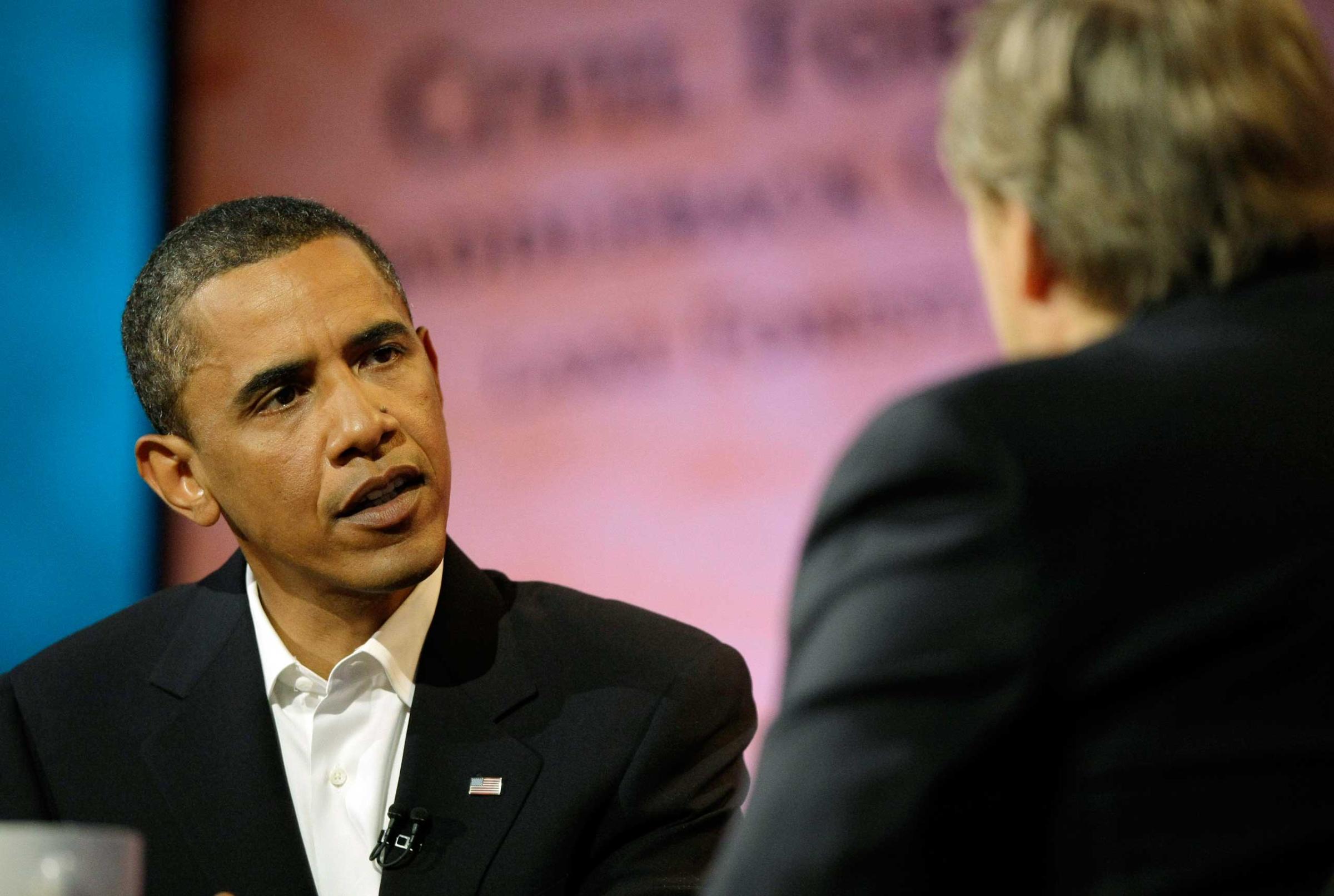
He also says, repeatedly, that he is against gay marriage. “I believe that marriage is the union between a man and a woman. Now, for me as a Christian — for me — for me as a Christian, it is also a sacred union. God’s in the mix,” he tells pastor Rick Warren at the Saddleback Presidential Forum in April.
2009: Obama signs the Matthew Shepard and James Byrd Jr. Hate Crimes Act
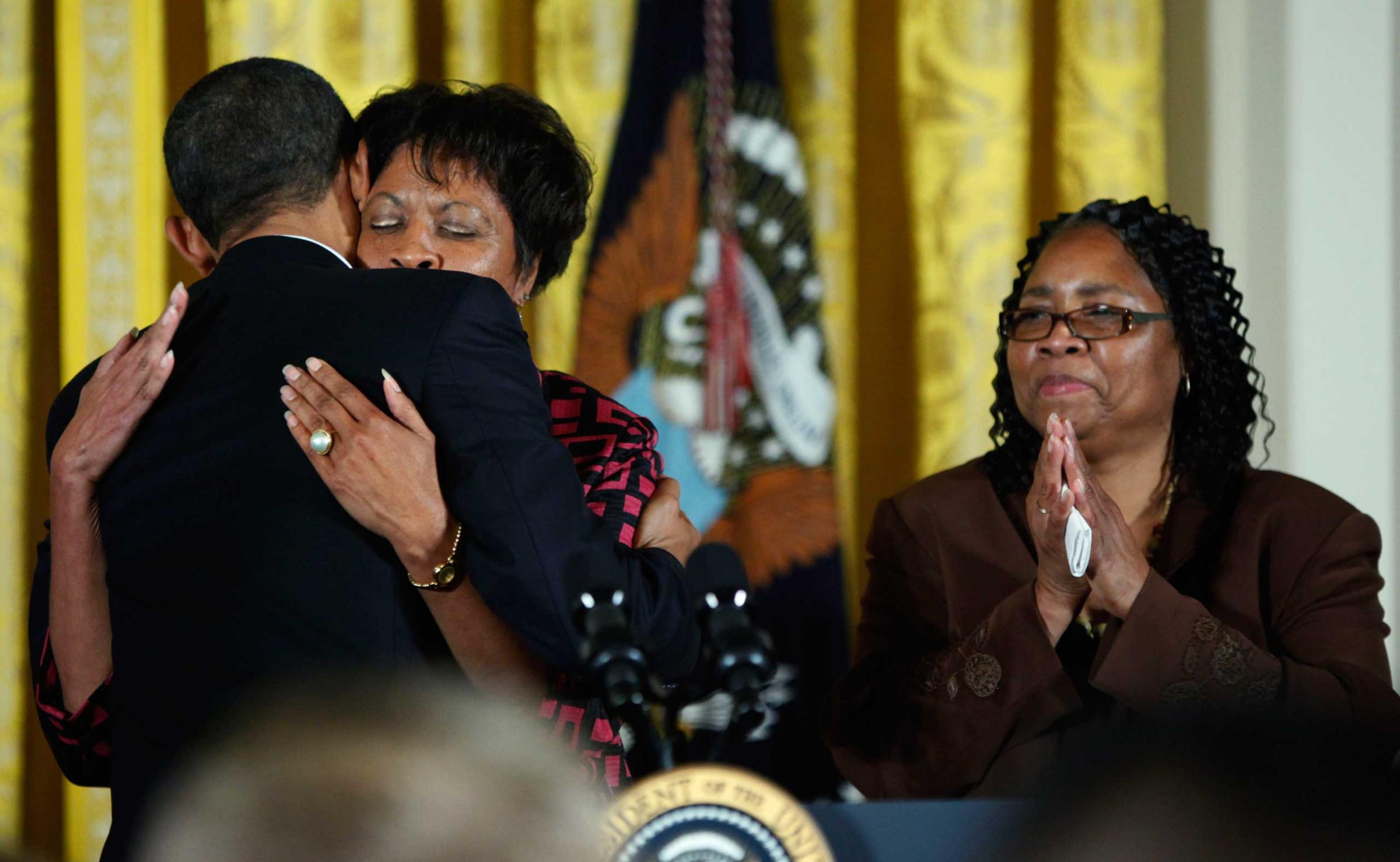
The hate crime law, which Congress had first introduced in 1997, gives the Justice Department jurisdiction over crimes of violence in which a perpetrator has selected a victim because of sexual orientation or gender identity, as well as many other characteristics.
October 2010: Obama starts ‘evolving’ on gay marriage
At a Q&A session with progressive bloggers, Obama says that while he has been “unwilling to sign on to same-sex marriage,” times are changing and “attitudes evolve, including mine. And I think that it is an issue that I wrestle with and think about because I have a whole host of friends who are in gay partnerships. I have staff members who are in committed, monogamous relationships, who are raising children, who are wonderful parents.”
December 2010: Obama signs a bill repealing ‘Don’t Ask, Don’t Tell’
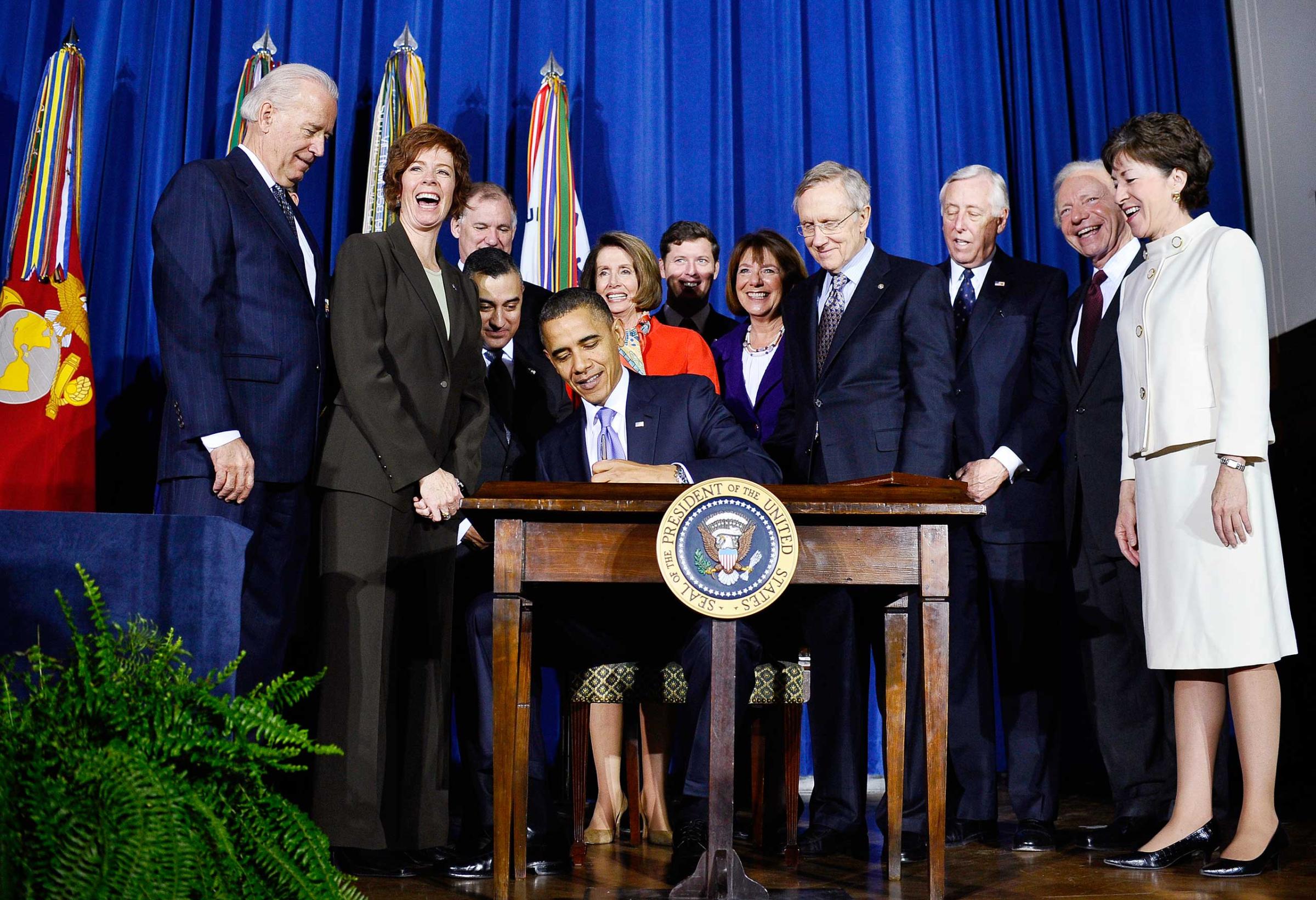
The same month, he reiterates at a press conference that his stance on same-sex marriage is “constantly evolving.” By July, the Commander-in-Chief formally certifies that the military is ready for the open service of lesbian, gay and bisexual troops. Open service for transgender troops remains verboten.
February 2011: Obama instructs the Justice Department to stop defending DOMA in court, saying that he believes it is unconstitutional
“While both the wisdom and the legality of [DOMA] will continue to be the subject of both extensive litigation and public debate, this Administration will no longer assert its constitutionality in court,” Holder said in a statement.
May 2012: Obama becomes the first president to support same-sex marriage
After Vice President Joe Biden announces his support for same-sex marriage, Obama is forced to move up a planned announcement of his change in position. In an interview with ABC’s Robin Roberts, Obama says he has changed his mind. “At a certain point,” he said, “I’ve just concluded that — for me personally, it is important for me to go ahead and affirm that — I think same-sex couples should be able to get married.”
July 2014: Obama signs an executive order protecting LGBT employees working for government contractors
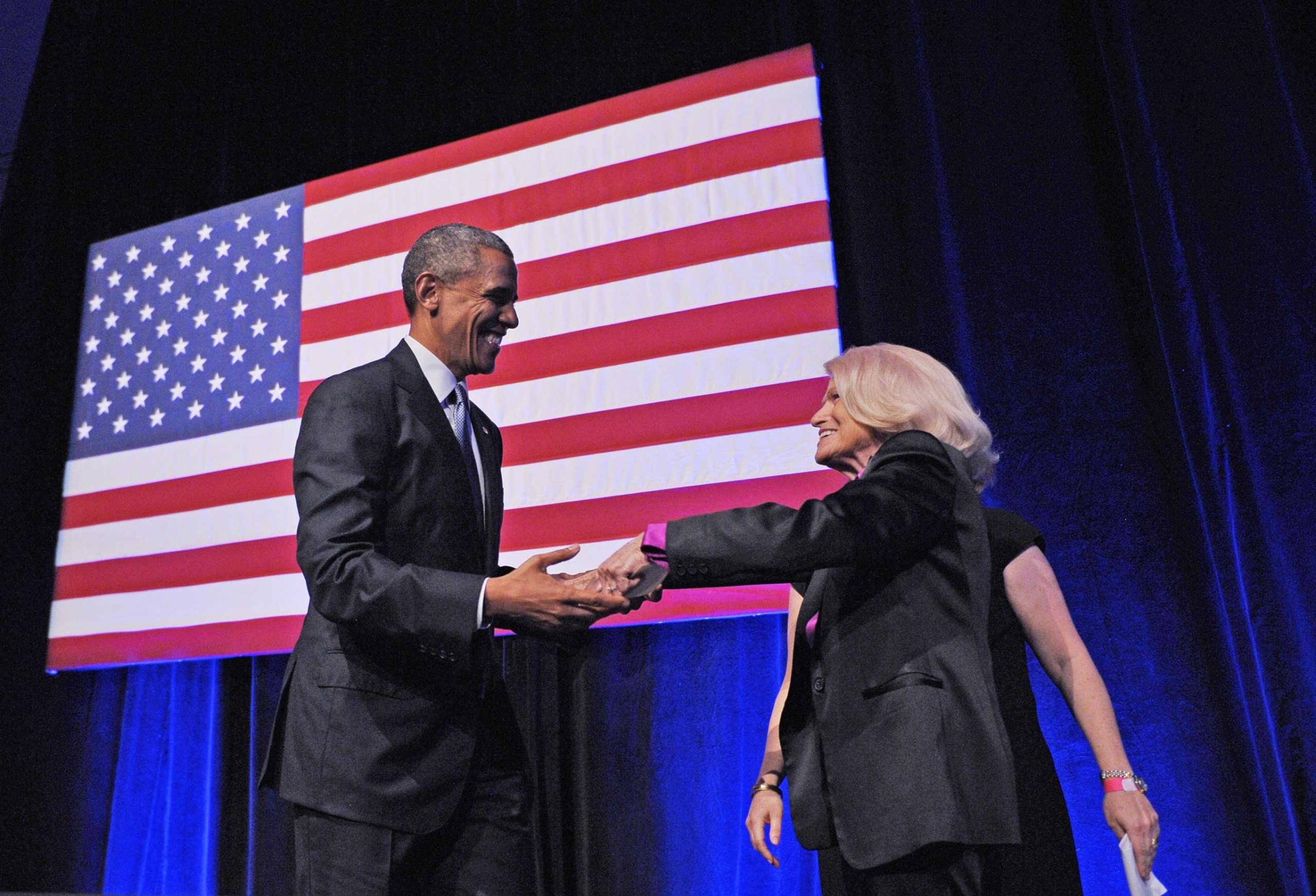
The order applies to a group of workers that, at around 28 million, accounts for about one-fifth of the American workforce. “America’s federal contracts should not subsidize discrimination against the American people,” he says. The federal government, as well as the majority of states, do not have blanket prohibitions on LGBT discrimination.
December 2014: The Obama Administration interprets the Civil Rights Act as supportive of LGBT rights
The Department of Education articulates a clear stance on gender identity, while the Department of Justice announces that all its attorneys will interpret the federal ban on sex discrimination to include discrimination against transgender Americans.
“Under Title IX,” a memo from the Department of Education reads, a school “must treat transgender students consistent with their gender identity in all aspects of the planning, implementation, enrollment, operation, and evaluation of single-sex classes.”
“This important shift will ensure that the protections of the Civil Rights Act of 1964 are extended to those who suffer discrimination based on gender identity, including transgender status,” Attorney General Eric Holder said.
January 2015: Obama becomes the first president to use the word ‘transgender’ in a State of the Union address
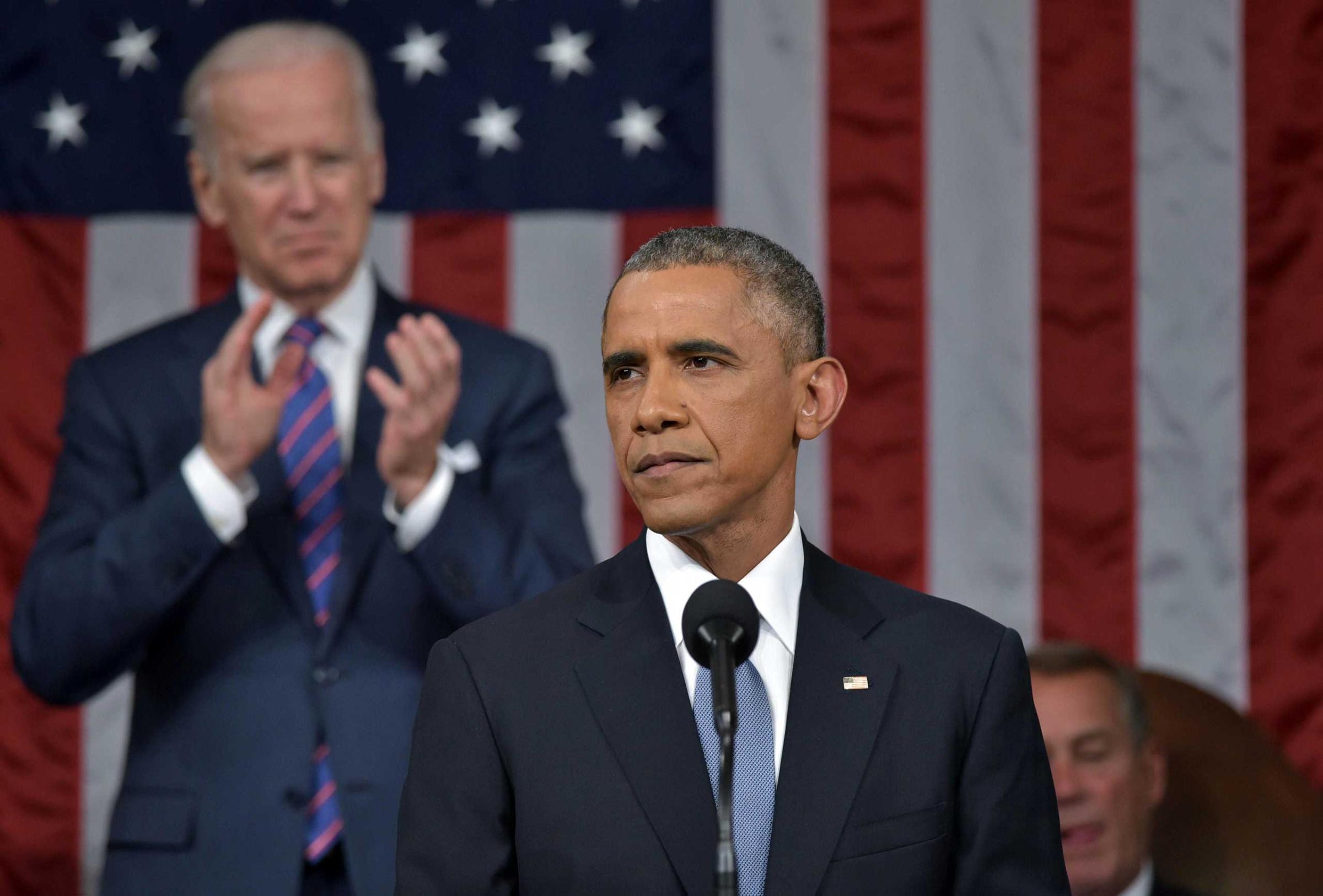
“As Americans, we respect human dignity,” he said. “That’s why we defend free speech, and advocate for political prisoners, and condemn the persecution of women, or religious minorities, or people who are lesbian, gay, bisexual or transgender.”
April 2015: Obama says that conversion therapy for minors should be banned
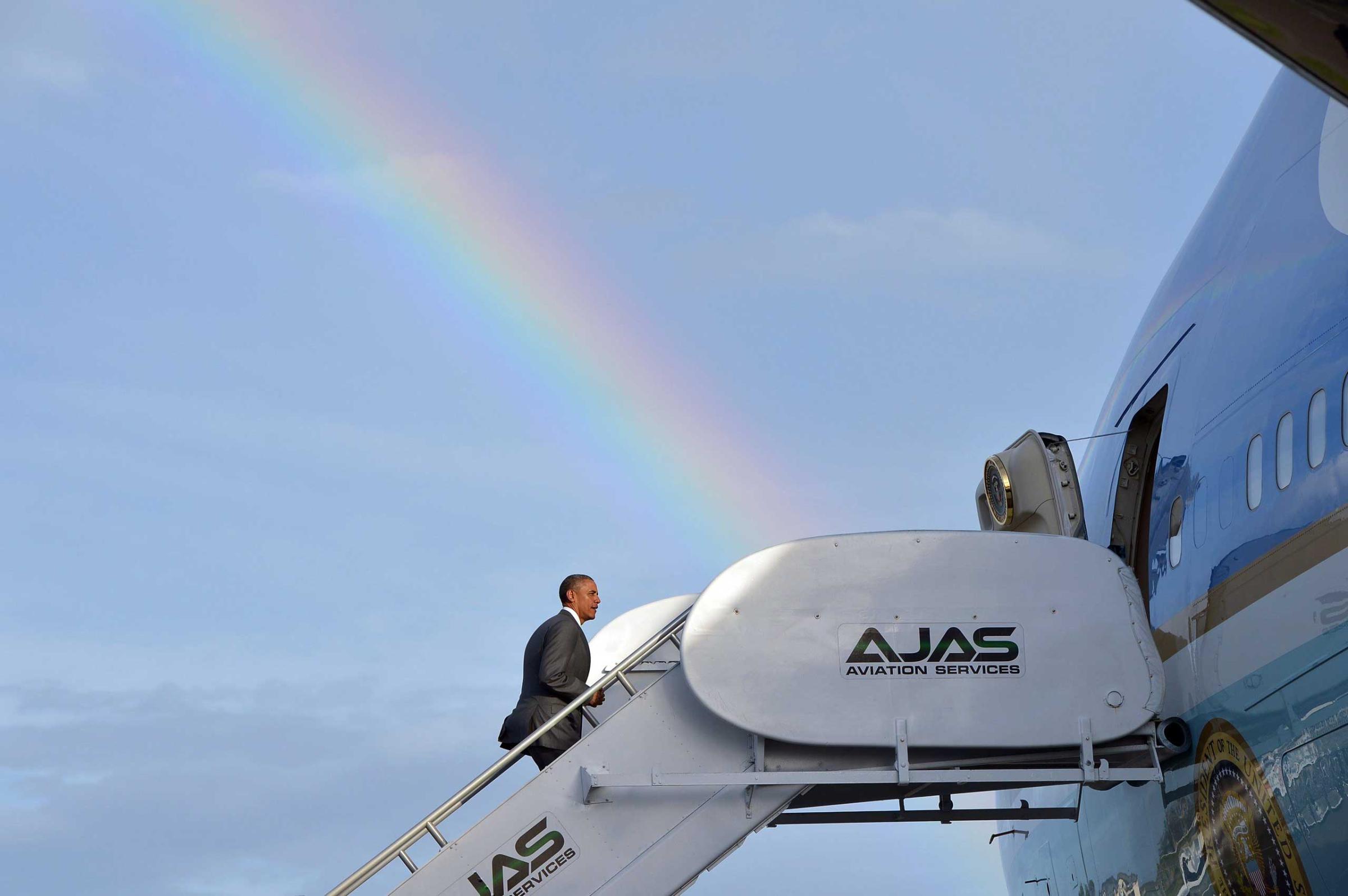
Conversion therapy attempts to “correct” homosexual or transgender feelings. Obama’s response comes after thousands signed a White House petition in honor of Leelah Alcorn, a transgender girl who committed suicide by walking into traffic after being forced to go through such sessions, according to notes she left. Two states, California and New Jersey, have outlawed the practice.
More Must-Reads from TIME
- Caitlin Clark Is TIME's 2024 Athlete of the Year
- Where Trump 2.0 Will Differ From 1.0
- Is Intermittent Fasting Good or Bad for You?
- The 100 Must-Read Books of 2024
- Column: If Optimism Feels Ridiculous Now, Try Hope
- The Future of Climate Action Is Trade Policy
- FX’s Say Nothing Is the Must-Watch Political Thriller of 2024
- Merle Bombardieri Is Helping People Make the Baby Decision
Contact us at letters@time.com